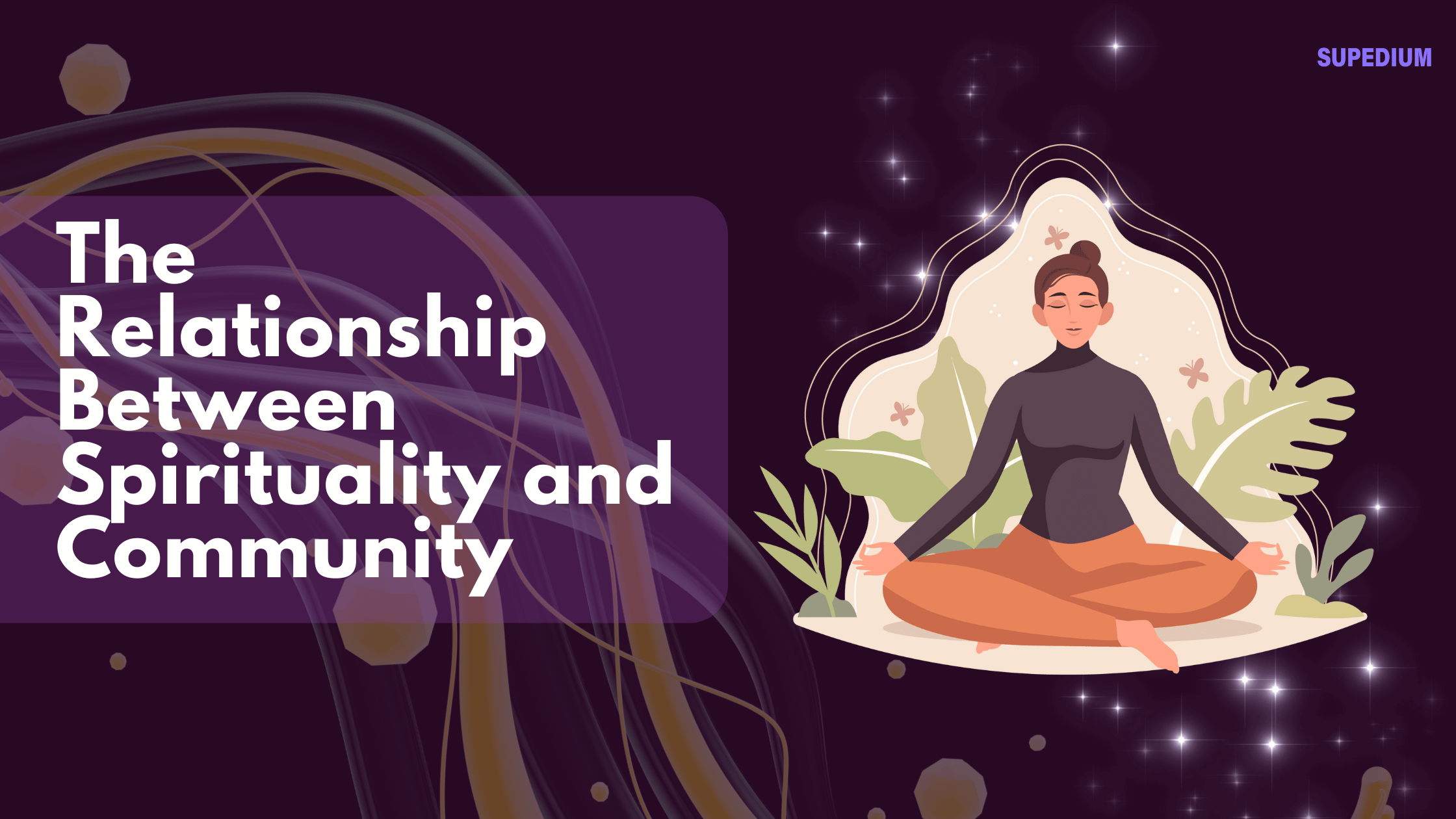Table of Contents
![]()
Introduction
Spirituality and community are two deeply interconnected aspects of human experience. Spirituality generally refers to an individual’s personal connection to a higher power or transcendent reality, exploring meaning, purpose, and values. Community, on the other hand, involves a group of individuals sharing common interests, goals, or geographical location, functioning as social networks and support systems. Understanding the relationship between spirituality and community is crucial as it illuminates how individual beliefs and practices can shape and be shaped by collective social dynamics.
Historical Perspectives
Ancient Traditions
In ancient societies, spirituality was often intertwined with community life. Early humans engaged in tribal rituals and communal worship that served both spiritual and social functions. These practices helped to establish and reinforce community bonds, creating a cohesive group identity. Spirituality provided a framework for understanding the world and the human place within it, influencing communal norms and behavior.
Religious Institutions and Communities
Major world religions have historically played a significant role in shaping community structures. For instance, Christianity, Islam, and Hinduism have all established religious institutions that serve as centers for spiritual life and community organization. Monastic communities, religious sects, and congregational gatherings are historical examples of how religious practice and community life are deeply interconnected.
The Role of Spirituality in Community Building
Shared Beliefs and Values
Shared spiritual beliefs and values form a strong foundation for community cohesion. When individuals within a community hold similar spiritual views, it fosters a sense of unity and common purpose. Rituals and practices, such as prayer meetings, festivals, or meditation groups, reinforce these shared values, strengthening community bonds and creating a sense of belonging.
Sense of Belonging and Identity
Spirituality plays a key role in fostering a sense of belonging within a community. It provides individuals with a sense of purpose and identity that is intertwined with their communal life. This shared spiritual identity can enhance feelings of inclusion and connection among community members, creating a supportive environment where individuals feel valued and understood.
Social Support and Solidarity
Communities with a strong spiritual component often provide substantial emotional and practical support to their members. Spiritual communities can act as safety nets, offering aid in times of need and fostering a culture of mutual assistance. This support system is grounded in spiritual principles of compassion and solidarity, which can significantly enhance the well-being of community members.
Community’s Influence on Spirituality
Spiritual Growth through Community Engagement
Engaging with a spiritual community can significantly enhance individual spiritual growth. Communal activities, such as group worship, study circles, or service projects, provide opportunities for individuals to explore and deepen their spiritual understanding. Being part of a community also offers diverse perspectives and experiences, which can enrich one’s personal spiritual journey.
Community Norms and Spiritual Practices
The norms and values of a community can influence individual spiritual practices. For example, in a community with a strong emphasis on communal worship, individuals may adapt their personal spirituality to align with communal expectations. This interaction between personal and communal spirituality can shape how individuals practice their faith and engage with their spiritual beliefs.
Challenges and Tensions
Despite the benefits, conflicts can arise between personal spirituality and communal norms. Individuals may find themselves at odds with the dominant spiritual practices or beliefs of their community. Navigating these tensions requires careful consideration and dialogue to balance personal spiritual needs with communal expectations.
Modern Contexts and Case Studies
Contemporary Spiritual Communities
In modern times, new forms of spiritual communities have emerged, such as New Age groups and online spiritual networks. These contemporary communities often have flexible structures and diverse spiritual practices. They offer a space for individuals to connect with like-minded people and explore spirituality in innovative ways, reflecting the evolving nature of community and spiritual life.
Interfaith and Ecumenical Movements
Interfaith and ecumenical movements aim to foster understanding and cooperation among different religious traditions. These movements often involve collaborative projects and dialogues that build bridges between diverse communities. Successful examples include interfaith community service initiatives and joint spiritual retreats, which demonstrate how spiritual engagement can enhance community relations.
Secular and Non-Religious Communities
Secular or non-religious communities also incorporate spiritual elements into their practices. These communities may focus on humanistic or philosophical principles rather than traditional religious beliefs. They often emphasize shared values, ethical living, and personal growth, illustrating that spirituality can exist outside conventional religious frameworks and still contribute to community building.
Psychological and Sociological Perspectives
Psychological Impact of Spirituality on Community Life
Spirituality can have a profound impact on psychological well-being and community integration. Research indicates that spiritual practices and community involvement can enhance mental health, providing a sense of purpose and reducing feelings of isolation. Case studies have shown that individuals who participate in spiritually-oriented communities often report greater life satisfaction and emotional support.
Sociological Theories on Spirituality and Community
Sociological theories provide insights into how spirituality influences social structures. For instance, Emile Durkheim’s concept of “collective effervescence” describes how communal spiritual experiences can strengthen social bonds and reinforce group cohesion. Analyzing how community dynamics affect spiritual practices helps to understand the reciprocal relationship between individual and collective spirituality.
Practical Implications and Applications
Enhancing Community Engagement
Integrating spiritual practices into community activities can enhance engagement and cohesion. Strategies such as organizing spiritual workshops, group meditations, or community service projects based on spiritual values can foster stronger connections among members. These activities not only build community but also support individual spiritual development.
Addressing Challenges
To address conflicts between personal and communal spirituality, communities can encourage open dialogue and inclusivity. Providing space for diverse spiritual practices and respecting individual differences can help balance personal needs with communal expectations. Developing policies that accommodate various spiritual beliefs can also contribute to a more harmonious community environment.
Future Trends and Innovations
Emerging trends in spirituality and community dynamics include the rise of digital spirituality and the blending of traditional practices with modern lifestyles. Future developments may involve more global and interconnected spiritual communities, facilitated by technology and cross-cultural exchanges. These innovations will likely continue to shape the relationship between spirituality and community in new and diverse ways.
Conclusion
The relationship between spirituality and community is complex and multifaceted, reflecting how individual beliefs and collective practices intersect to shape human experience. Understanding this relationship offers valuable insights into how spiritual and social dimensions influence one another, highlighting the significance of both personal and communal aspects of life. As societies continue to evolve, exploring and nurturing this relationship will remain crucial for fostering well-being and social cohesion.
Share This





Be the first to comment